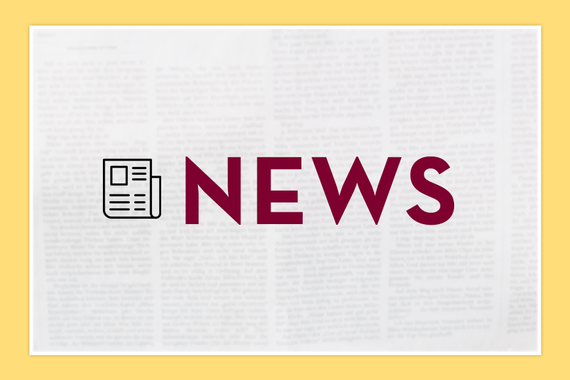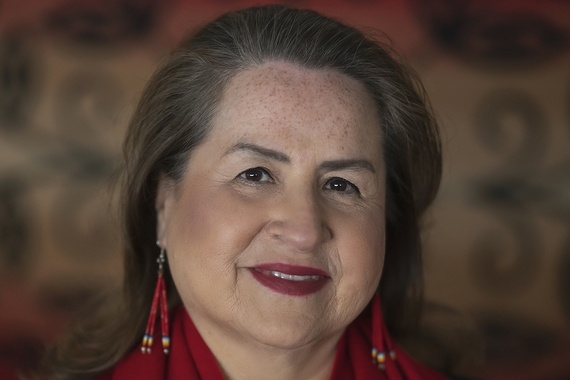American Studies: An Interdisciplinary Powerhouse
The field of American studies helps you understand the world, the nation, and your local community while building the skills you need for your future careers. From music to technology and history to popular culture, American studies offers something for everyone.
Holistic Approaches to AI
What does it mean to be in American studies? Associate Professor Elliott Powell describes his interdisciplinary field as one that “thinks about how complex and interconnected we are, both in this country, but also across the world.” In American studies, we examine the United States and its relationship with the world, confronting the pressing issues of our times.
American studies scholars practice critical thinking by engaging with a variety of real-world issues. “This isn't just sets of academic texts for us to think only intellectually about, but to also think about how there are real-world consequences to these sets of issues,” Powell explains.
Take artificial intelligence, for example. In 2022, prominent American studies scholar Dr. Alondra Nelson was serving as acting director of the White House Office of Science & Technology Policy, where she led the development of the Blueprint for an AI Bill of Rights, a program for policymakers, courts, corporations, and tech personnel to create safeguards for people within our age of AI. While some might consider AI to be solely in the world of STEM, Nelson drew from her background in American studies. Powell paraphrases Nelson’s approach as “we have to think about the human, we have to think about the humanistic.”
At the University of Minnesota, American studies PhD candidate Kristen Reynolds combines training in STEM with a background in history and literature to study, among other things, the intersections of AI, race, and bias. Powell explains that “She's bringing those things to bear in how we understand the contemporary world when we think about and when we relate to notions of technology, of AI and race.”
“Everyone Seemed to Have a Prince Story”
Powell’s research focuses on US popular music, politics, race, and sexuality. He has published on topics ranging from an exploration of gender, sexuality, age, and jazz in the Golden Girls to Afro–South Asian collaborations in Black popular music. “I wanted to see music and popular music as something that also has ties to the social and to the political,” Powell explains.
“One of the things that I first found out when I moved here was that everyone seemed to have a Prince story,” Powell says. That inspired him to take his broader work on popular music, race, and sexuality, “bringing them home to Minneapolis.” He developed the popular course Prince, Porn, and Public Space: The Cultural Politics of the Twin Cities in the 1980s, which filled all 90 seats in fall ‘23.
Powell’s interest in Prince extends beyond the classroom. He has participated in events with members of Prince's family and his childhood friends for the Hennepin Library and Minnesota Historical Society and spoke at the College of Liberal Art's honorary doctorate ceremony for Prince, an award he helped nominate the artist for before his untimely death, and contributed to Mayor Frey's Prince Day Proclamation on June 7, 2023. Powell is quick to point out that this work is not done in an ivory tower, but rather through partnerships with the community, a hallmark of American studies at the University of Minnesota.
Connecting the Local and the Global
Ranked second among public institutions with American studies programs and in the top five across the country—both public and private—our department is “on the cutting edge of the field,” Powell says. In fact, “We were one of the first departments of American studies to embrace critical studies of popular culture and to think more broadly about the geography we study.
“One of the things that our department still hangs its hat on is that we think about America in a broad sense,” Powell boasts. Not limited to the United States, we are interested in North America, South America, and Central America. And we take “a very transnational approach,” thinking about “America’s and the Americas’ relationship with the rest of the world.”
At the same time, we are very concerned with the local and regional, with many scholars doing work on the Twin Cities, Minnesota, and the upper Midwest. Our students take advantage of the many opportunities to gain real-world experience in the communities they study. For example, you could get an internship with a local museum or the Minnesota legislature or you could do community-engaged research in partnership with a local nonprofit—all while applying what you’ve learned in American studies classrooms.
“American studies prepares folks to be innovative and creative, in part because [as a society] we're not necessarily trained to think across different sets of fields and disciplines.” When people do a math problem, they might not automatically connect it with writing, and when they learn about a scientific discovery, they might not consider its political implications. But students in American studies learn to recognize and critically examine the relationships between seemingly disparate things.
It’s a life skill that you can apply to a wide variety of meaningful careers and will help you become an informed citizen of the world. Powell believes that “American studies and the College of Liberal Arts prepare students to be active members of society, and publicly engaged human beings.”
Career Ready
As an American studies student, you will develop ten core competencies to prepare you for your future career, including:
Comprehensively explore issues, ideas, knowledge, evidence, and values before accepting or formulating an opinion or conclusion.
- Recognize there may be more than one valid point of view.
- Evaluate an issue or problem based on multiple perspectives, while accounting for personal biases.
- Identify when information is missing or if there is a problem, prior to coming to conclusions and making decisions.
Recognize ethical issues arising in a variety of settings or social contexts, reflect on the ethical concerns that pertain to the issue, and choose a course of action based on these reflections.
- Assess your own personal and moral values and perspectives as well as those of other stakeholders.
- Integrate these values and perspectives into an ethical framework for decision-making.
- Consider intentions and the short- and long-term consequences of actions and the ethical principles that apply in the situation before making decisions.
Develop a consciousness about one's potential contributions and roles in the many communities one inhabits, in person and online, and take action accordingly.
- Actively engage with the communities in which they are involved.
- Build awareness of how communities impact individuals, and how, in turn, an individual impacts, serves, and shapes communities.
- Evolve their awareness of culture and power in community dynamics.
This story was written by Peyton Thao, an undergraduate student in CLA.


